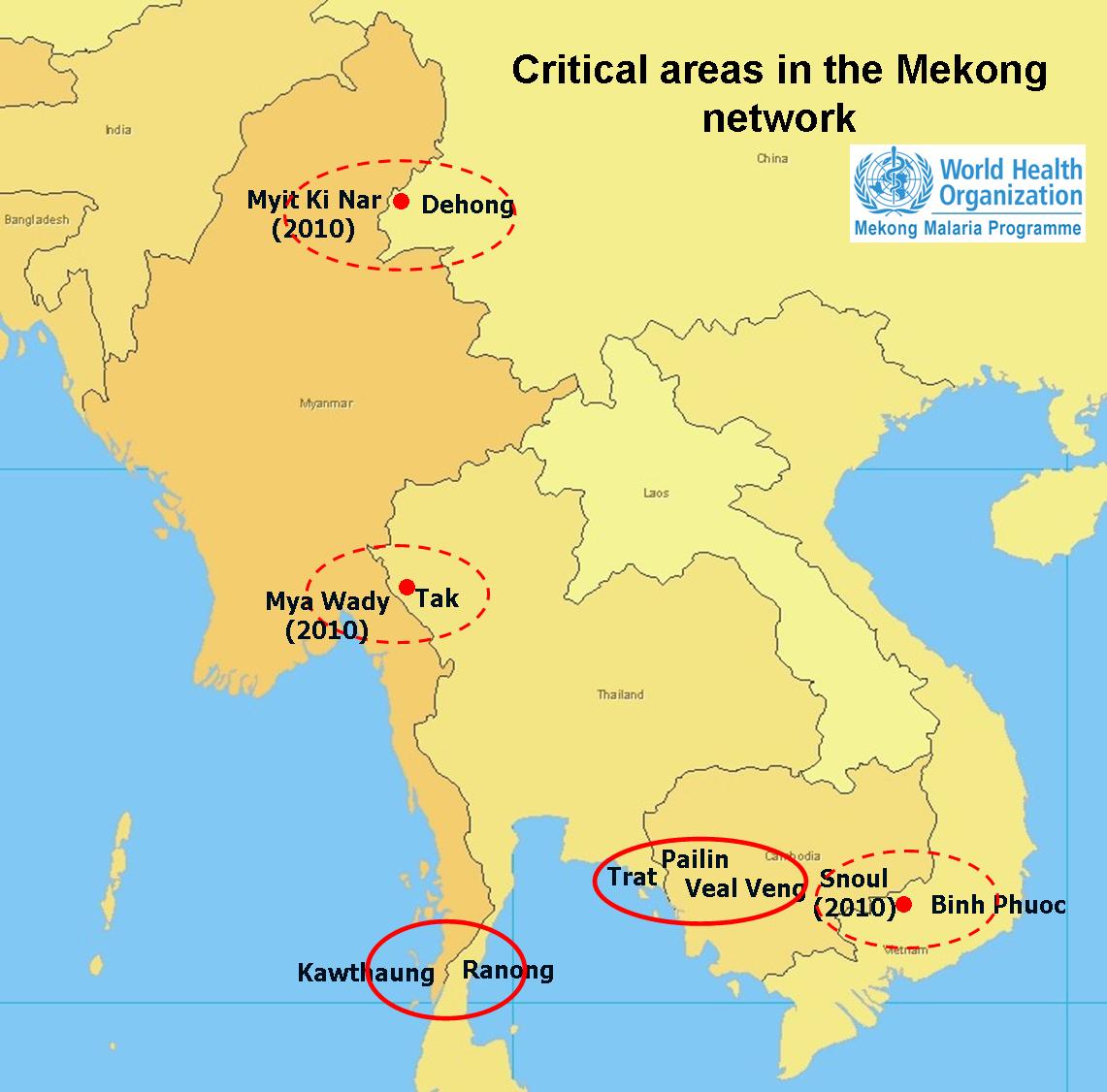
NEWS RELEASE: Resistance to Malaria Drugs Spreading in SE Asia
20 November 2009 London, 20 November 2009: Despite increased investment in malaria control demonstrating dramatic success, with the latest artemisinin-based drug combinations proving highly efficient as both treatment and defence against resistance by the malaria parasite, there are new indications that resistance to artemisinin-based drugs, already confirmed in Thailand and Cambodia, is beginning to crop up elsewhere in the Southeast Asia region.
London, 20 November 2009: Despite increased investment in malaria control demonstrating dramatic success, with the latest artemisinin-based drug combinations proving highly efficient as both treatment and defence against resistance by the malaria parasite, there are new indications that resistance to artemisinin-based drugs, already confirmed in Thailand and Cambodia, is beginning to crop up elsewhere in the Southeast Asia region.“Malaria control is at a pivotal point,” said Dr Sylvia Meek, Technical Director for Malaria Consortium, the world’s leading non-profit organisation dedicated to the comprehensive control of malaria. “But it is also vulnerable, as funding is difficult to sustain and strategies are relying on a small number of highly effective tools.
“Antimalarial drug resistance is one of the greatest threats to achievement of the targets of the Roll Back Malaria movement,” Dr Meek explained. “Possibly as a result of inadequate access to exclusive artemisinin combination therapies (ACTs), resistance to artemisinin has now been confirmed in Thailand and Cambodia, and there are indications that artemisinin resistance may be present elsewhere in the region, including Myanmar, China and Vietnam.”
The proportion of patients who still carry malaria parasites on the third day of treatment is currently the best measure available of slow parasite clearance and can be used as a warning system for confirmation of artemisinin resistance. Currently, the alert point for resistance is at 10% of patients retaining the parasite after day three. Levels of day three positives in Myanmar with ACT treatment, and China and Vietnam with artesunate treatment range from 12-31% in recent studies.
Malaria Consortium and several other partners and with financial support from the Bill & Melinda Gates Foundation and USAID, are already involved in a concerted effort to contain resistance on the Thai-Cambodian border. These efforts are led by the World Health Organization and implemented by the national malaria programmes of Cambodia and Thailand.
“If resistance spreads to Africa, it could jeopardise efforts to move towards elimination,” said Dr Meek. “There is now an urgent need to extend the area of containment.”
For more information or to arrange an interview with Dr Meek, please contact Diana Thomas, [email protected] or +44 (0)20 7549 0254
Notes for Editors:
Artemisinin-based combination therapies (ACTs)
Artemisinin-based combination therapies (ACTs) offer a highly efficacious treatment and their use as combinations protects drugs from development of resistance by the most dangerous malaria parasite, Plasmodium falciparum.
Malaria Consortium:
Malaria Consortium is a globally leading not-for-profit organisation dedicated to the control of malaria and other communicable diseases as well as other childhood illnesses. The organisation’s technical expertise and practical experience allows it to enhance the impact of malaria and disease control programmes. Malaria Consortium is headquartered in the UK, with over 90% of its staff based in malaria-endemic regions, providing support to governments and partners in over 20 countries.
more
Latest news
- Malaria Consortium honoured by Ugandan government for contribution to combat malaria23rd April 2024
- International summit calls for AMR accountability in public health interventions21st March 2024
- Global SMC community celebrates new milestone at SMC Alliance Annual Meeting in Nigeria6th March 2024
- Scaling up key interventions could halve pneumonia-related childhood mortality13th February 2024
- Malaria Consortium and eGov Foundation join Mozambique’s national malaria programme to digitalise seasonal malaria chemoprevention campaigns8th February 2024
- World’s first malaria vaccine rollout launched in Cameroon22nd January 2024